Who after Igor Stimac? An analysis of why Indian coaches must be prioritised and who can be the next Indian football coach
Change is the only constant. Indian football has had to grapple with the immediate reality of the aphorism in the last few weeks.
On June 6, India’s highest-ever goalscorer Sunil Chhetri hung up his boots and its men’s team head coach, Igor Stimac, was shown the door on Monday, after nine losses and two draws in his last 12 games in charge.
“Noting the disappointing outcome of the Senior Men’s National Team’s FIFA World Cup 2026 qualification campaign, the members unanimously agreed that a new Head Coach would be best placed to take the team forward,” said AIFF in an official statement.
“A notice of termination has been issued to Mr. Stimac by the AIFF Secretariat, and he stands relieved of his obligations with immediate effect.”
ALSO READ | Igor Stimac shown the door as snooze button is hit on Indian football
India, under Stimac, suffered agonising defeats in the AFC Asian Cup 2024 in Qatar. Moreover, its loss to Afghanistan on home soil for the first time saw ‘Stimac Out!’ chants become the norm in India’s games.
There can be several arguments about what went wrong and what could have been done about the coach or coaching. And with Stimac gone, the question remains who can possibly replace him?
Need to go against the norm
The present administration of the AIFF, when it took charge, had promised new strategies to develop the game, including making the condition of Indian Football ‘incredible’ by 2047.
And the appointment of a head coach could prove to be one of its major decisions towards its vision of helping the men’s team enter the top 10 of FIFA rankings in Asia.
One of the major cases here would be the argument of a foreign coach against a coach from the country – the typical case of local versus import.
Japan and England have been the biggest examples of believing in local coaches, with both switching to their own nationals after faltering under foreign coaches.
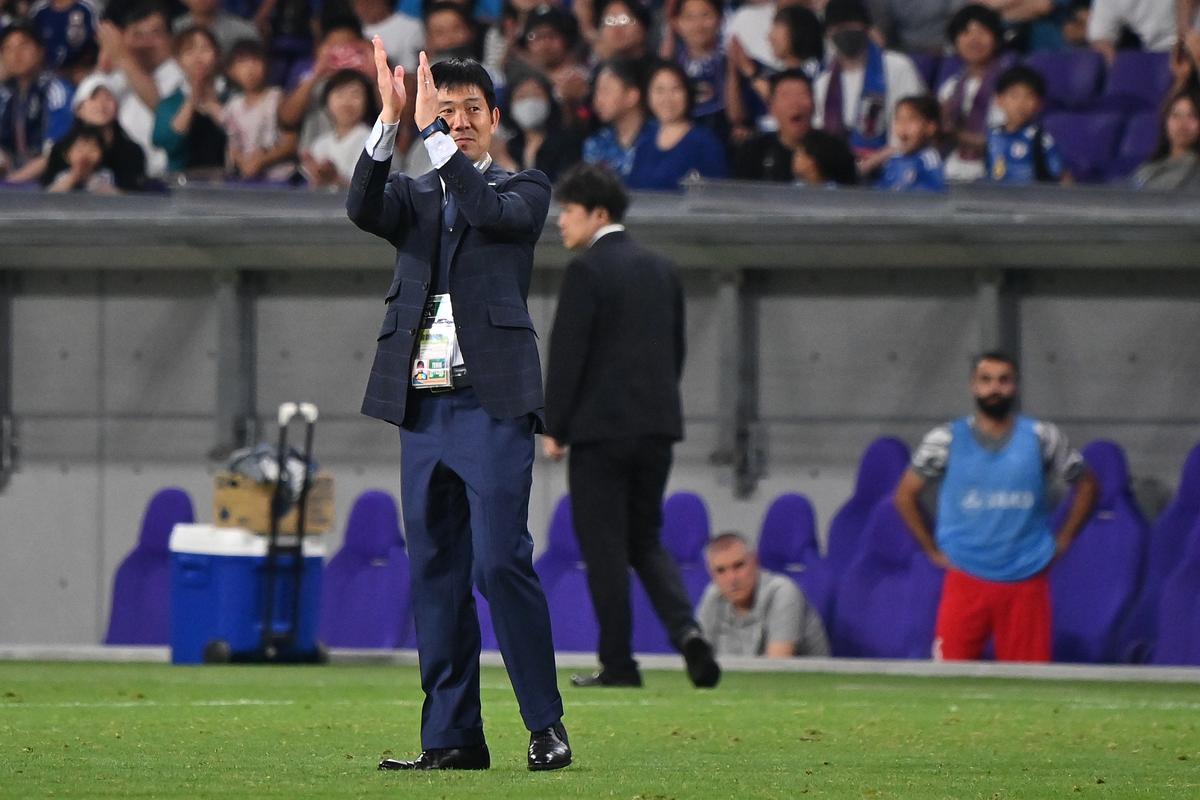
Japan and England have been the biggest examples of believing in local coaches, with Hajime Moriyasu since 2018.
| Photo Credit:
Getty Images
Japan and England have been the biggest examples of believing in local coaches, with Hajime Moriyasu since 2018.
| Photo Credit:
Getty Images
Akira Nishino replaced Bosnian Vahid Halilhodžic before Hajime Moriyasu took over while the Three Lions found the most consistent manager since Alf Ramsey in Gareth Southgate, sticking with their penchant for English gaffers.
In the last 18 years, the AIFF has rested its trust primarily on foreign coaches, with only two Indians, Armando Colaco and Savio Medeira, given a chance to strengthen the case for local coaches.
List of Indian coaches from 2006-2024
- Bob Houghton [England] – 2006–2011
- Armando Colaco (interim) [India] – 2011
- Savio Medeira [India] – 2011–2012
- Wim Koevermans [Netherlands] – 2012–2014
- Stephen Constantine [England] – 2015–2019
- Igor Stimac [Croatia] – 2019–2024
“I have had nothing against Stimac, but I have often wondered whether Indian coaches would get a similar long run. Results cannot come overnight, particularly when a coach has a new philosophy and new ideas,” Colaco had said in an interview with Times of India in 2022.
You need to give him time. You need to be patient. I could have achieved results with the national team but didn’t get time.”
Now might be the right time for the Indian football think tank to ruminate on the prospect of looking at going the same way as the Japanese or England.
Mahesh Gawli, Khalid Jamil – A pragmatic solution
Mahesh Gawli has been the second-in-command of the National Team since 2022 and knows the current squad really well.
At the SAFF Championship last year, as Stimac watched from the stands, due to suspension, it was Gawli, who helped India beat Lebanon and Kuwait – both on penalties – in the semifinal and final.
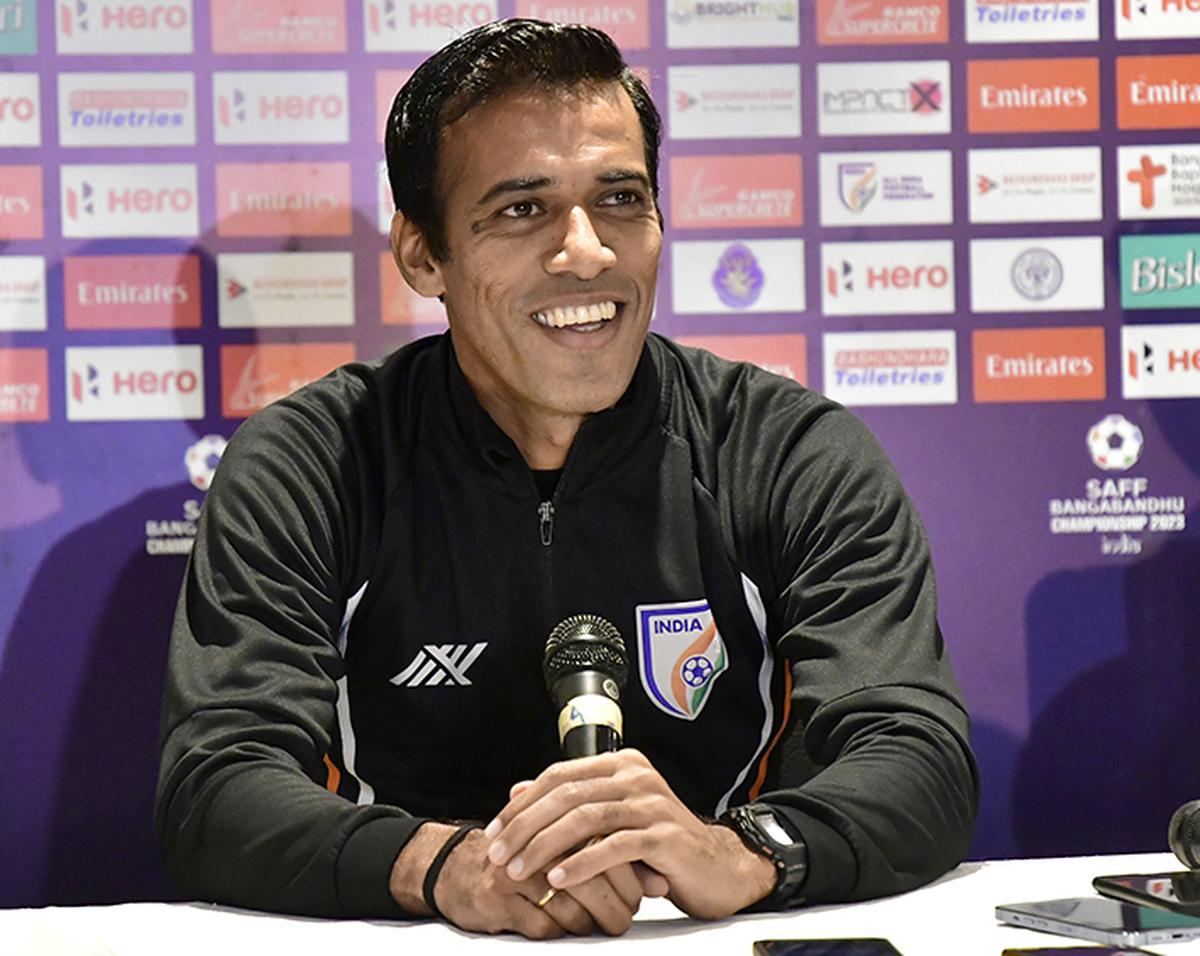
Mahesh Gawli has been the second-in-command of the National Team since 2022 and knows the current squad really well.
| Photo Credit:
MURALI KUMAR K/The Hindu
Mahesh Gawli has been the second-in-command of the National Team since 2022 and knows the current squad really well.
| Photo Credit:
MURALI KUMAR K/The Hindu
Moreover, he has been India’s under-20 coach since October 2022, which makes it easier for him to know the youngsters coming into the senior team framework.
Though it is too early to judge Gawli’s stats as head coach – with him coaching a handful of games – it is clear that he operates in a 4-3-3 formation with a tendency to pass the ball forward instead of square passing.
Khalid Jamil, on the other hand, has been in the coaching circuit longer than Gawli and has proven his mettle as a contingency coach in the Indian domestic circuit, with Mumbai FC, NorthEast United and most recently, with Jamshedpur FC.
Jamil thrives with limited resources and could be the best bet as National team coach, given his credentials at Indian clubs.
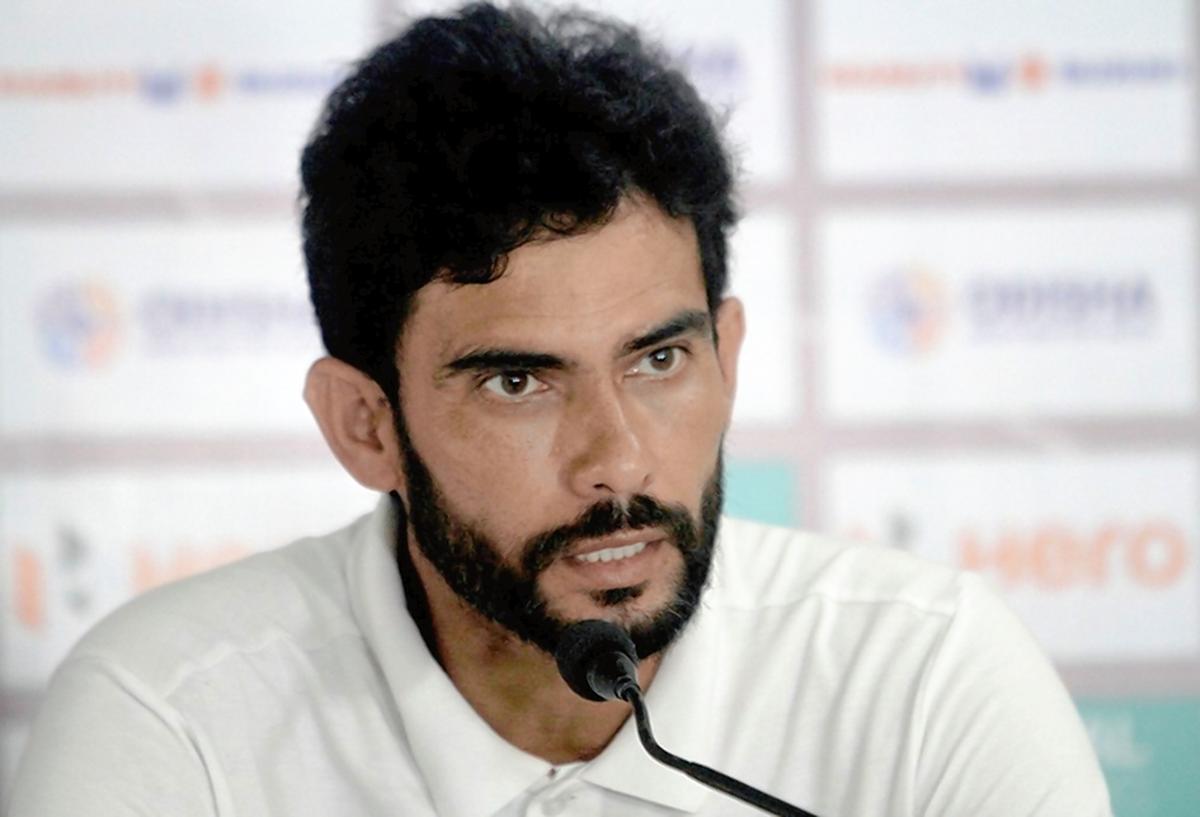
Khalid Jamil has been in the coaching circuit longer than Gawli and has proven his mettle as a contingency coach in the Indian domestic circuit.
| Photo Credit:
BISWARANJAN ROUT/The Hindu
Khalid Jamil has been in the coaching circuit longer than Gawli and has proven his mettle as a contingency coach in the Indian domestic circuit.
| Photo Credit:
BISWARANJAN ROUT/The Hindu
He helped Mumbai FC remain in the top flight with limited financial resources, guided Aizawl FC to its maiden I-League title (2016–17) and took NorthEast United from the bottom rungs of the Indian Super League (ISL) table to the semifinals in 2021, eventually becoming the first Indian coach in the league.
In his most recent job, at Jamshedpur FC, where he is still the coach, he helped the side finish as semifinalists in the Kalinga Super Cup after the departure of Scott Cooper.
Jamil’s style of play maintains a 4-2-3-1 formation, which falls back to a 5-3-2 when out of possession. He stresses on defence much more than attack, with consistent intensity against the opponent, which, at times, drains players more.
Jamil’s stats as manager (senior team):
Matches: 282
Won: 104
Drawn: 87
Lost: 91
Goals scored: 416
Win percentage: 36.88
Clifford Miranda – An organic approach
Clifford Miranda embodies everything that organic development of an Indian football coach upholds. He started as the coach of FC Goa’s youth side, winning the Goa Professional League in his first season in charge.
In the next season, he moved to the senior side as assistant coach and took over on an interim basis after head coach Sergio Lobera was sacked. Under him, the Gaurs won the ISL title and became the first Indian club to qualify for the AFC Champions League.
In his second stint with an ISL club, Odisha FC, he helped it win its first-ever major title, the Super Cup, which also saw him win the AIFF Men’s Coach of the Year 2023.
Miranda has enough domain knowledge about India’s youth infrastructure, which can further help in building a base for the National team.
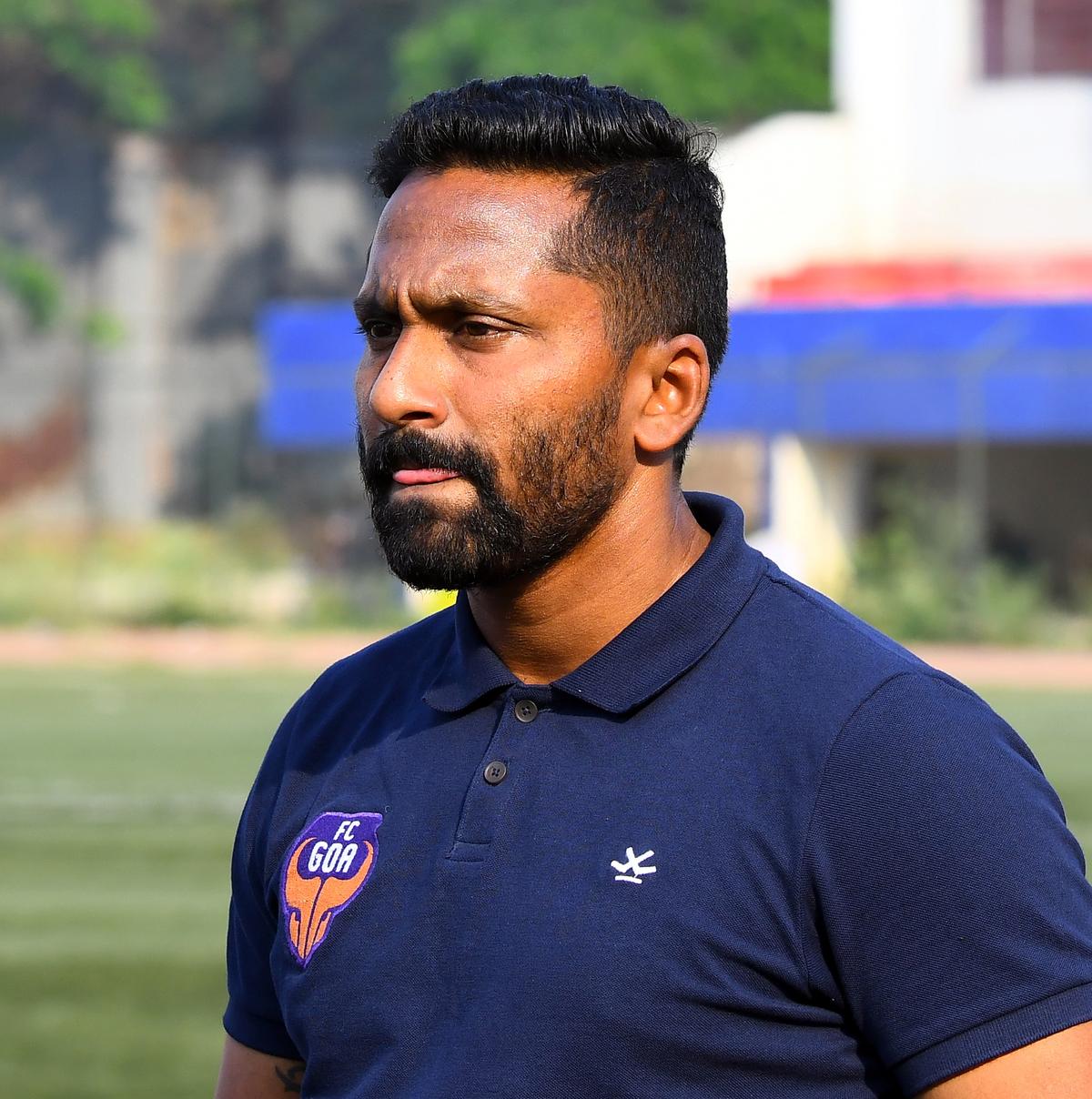
Miranda has enough domain knowledge about India’s youth infrastructure, which can further help in building a base for the National team.
| Photo Credit:
SUDHAKARA JAIN/The Hindu
Miranda has enough domain knowledge about India’s youth infrastructure, which can further help in building a base for the National team.
| Photo Credit:
SUDHAKARA JAIN/The Hindu
He has also worked as the head coach of the under-23 team, which keeps him more accustomed to the upcoming National team regulars.
However, his side lost both games in the U-23 AFC Asian Cup qualifiers, losing 1-2 to China and 0-3 to the United Arab Emirates – something that might go against him in his pursuit to become the senior team coach.
Miranda prefers a 4-4-2 formation with a double pivot to provide stability irrespective of possession. His style of play, through the pivots, ensures the control of space as wider players move and down the pitch with a midfield at most times of the game.
Miranda’s stats as manager (senior team):
Matches: 16
Won: 11
Drawn: 1
Lost: 4
Goals scored: 39
Win percentage: 68.75
Renedy Singh, Gouramangi Singh – More prospects from the domestic circuit
Renedy Singh impressed as coach when he took over as caretaker manager of East Bengal in the 2022-23 season, helping it finish the season with a narrow 0-1 loss and two draws in its final three games.
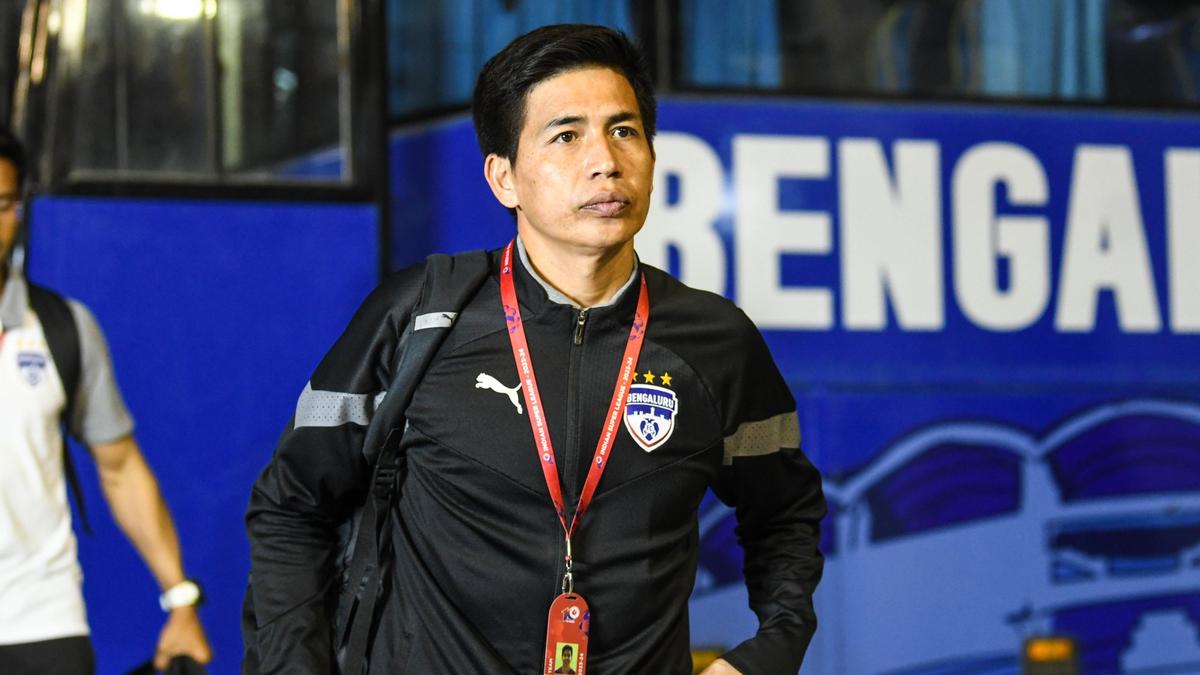
Renedy Singh impressed as coach when he took over as caretaker manager of East Bengal in the 2022-23 season.
| Photo Credit:
X/Bengaluru FC
Renedy Singh impressed as coach when he took over as caretaker manager of East Bengal in the 2022-23 season.
| Photo Credit:
X/Bengaluru FC
The former India captain had been the assistant coach at a number of ISL sides, Pune City, East Bengal and Bengaluru FC, and also had a brief stint as head coach at I-League side Neroca FC.
As a result, his experience will be crucial in not just scouting youngsters from leagues below the ISL, but also in grooming them for bigger roles in the National team.
Renedy’s philosophy involves possession-based football, with a 4-1-4-1 or 4-3-2-1 shape, with emphasis on one-touch passes and quick build-up.
Though his time as assistant coach in the domestic circuit – and his reputation as a former National Team captain – will work in his favour, he is yet to win a game as head coach.
Renedy’s stats as manager (senior team):
Matches: 4
Won: 0
Drawn: 3
Lost: 1
Goals scored: 1
Win percentage: 0
Gouramangi Singh, another former National team veteran, moved into coaching in 2019, taking up the job of a first-team coach of Bengaluru United, which was competing in the BDFA first division league.
Bengaluru United won the BDFA division on consecutive occasions with him on the sidelines while he has continued to grow his resume, now serving as the assistant coach of FC Goa.
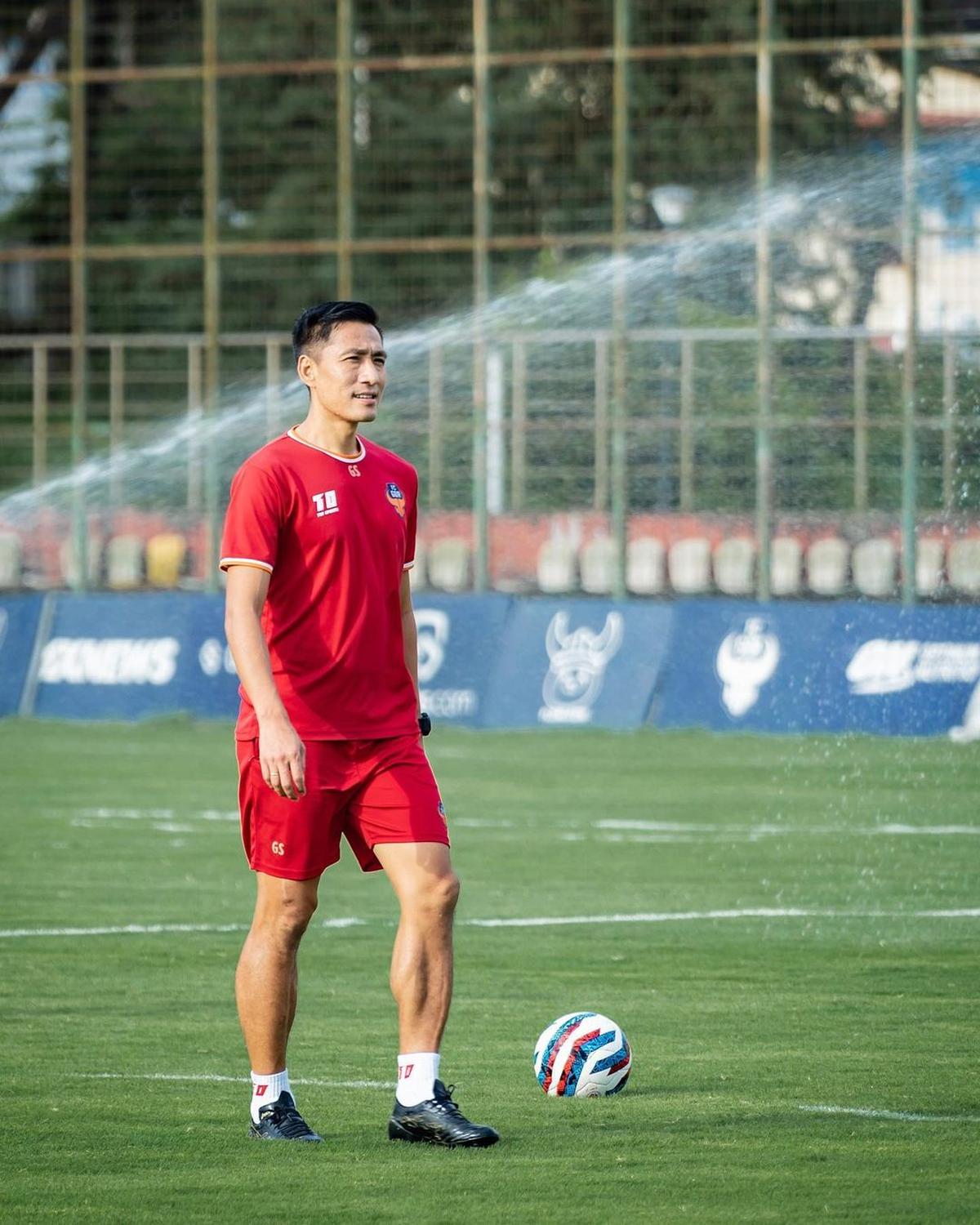
Gouramangi Singh, another former National team veteran, has continued to grow his resume, now serving as the assistant coach of FC Goa.
| Photo Credit:
IG/ Gouramangi Singh
Gouramangi Singh, another former National team veteran, has continued to grow his resume, now serving as the assistant coach of FC Goa.
| Photo Credit:
IG/ Gouramangi Singh
However, the lack of senior team experience as head coach will be the biggest cause of concern if he is shortlisted in the race for National team coach.
For the Blue Tigers, competitive matches are done and dusted for the year, and its ranking is expected to fall further.
As a new coach’s arrival is imminent, only time will tell if a coach from the country lands a job and whether he can take the team back to its glory days, once realised by another Indian coach, Syed Abdul Rahim.


